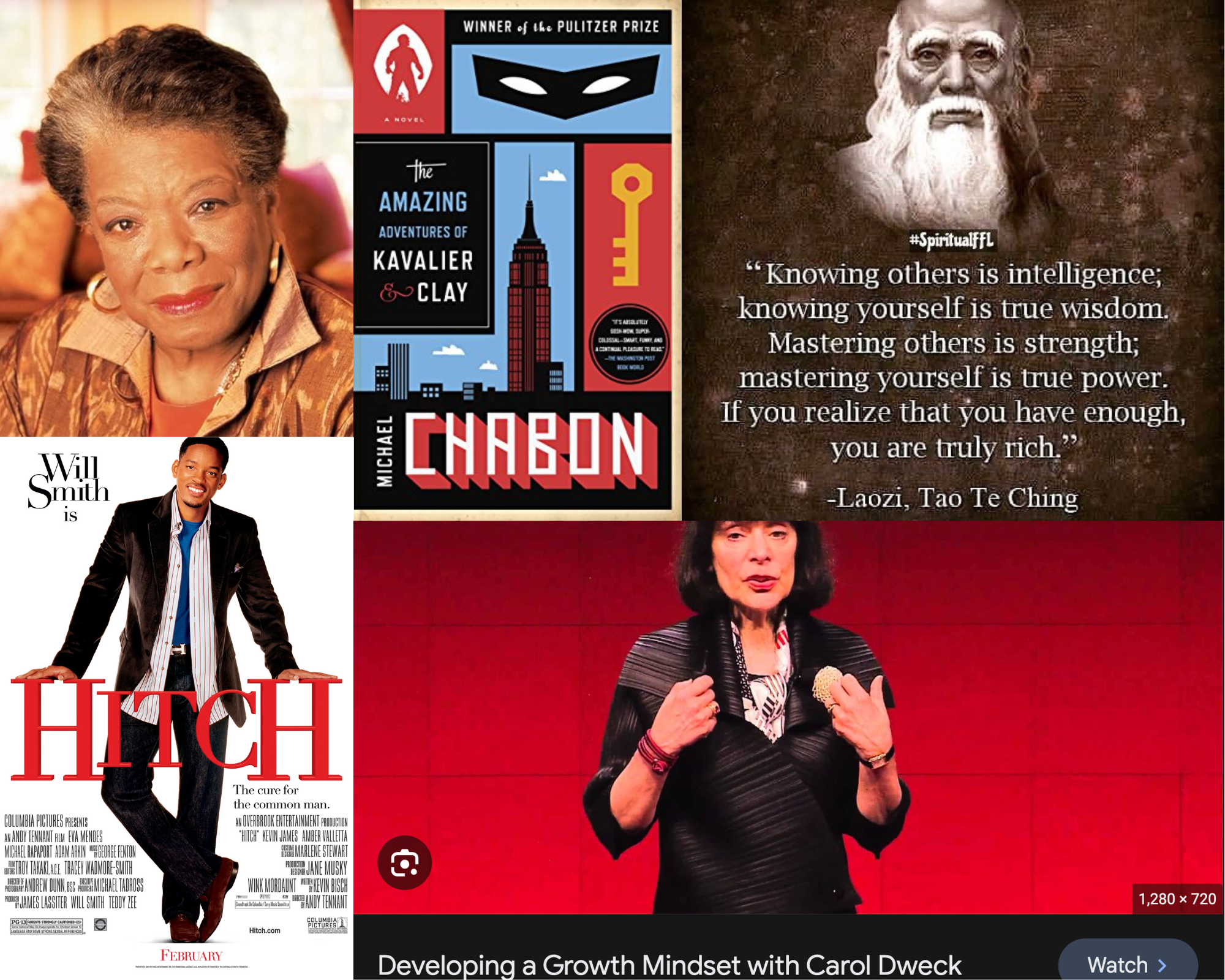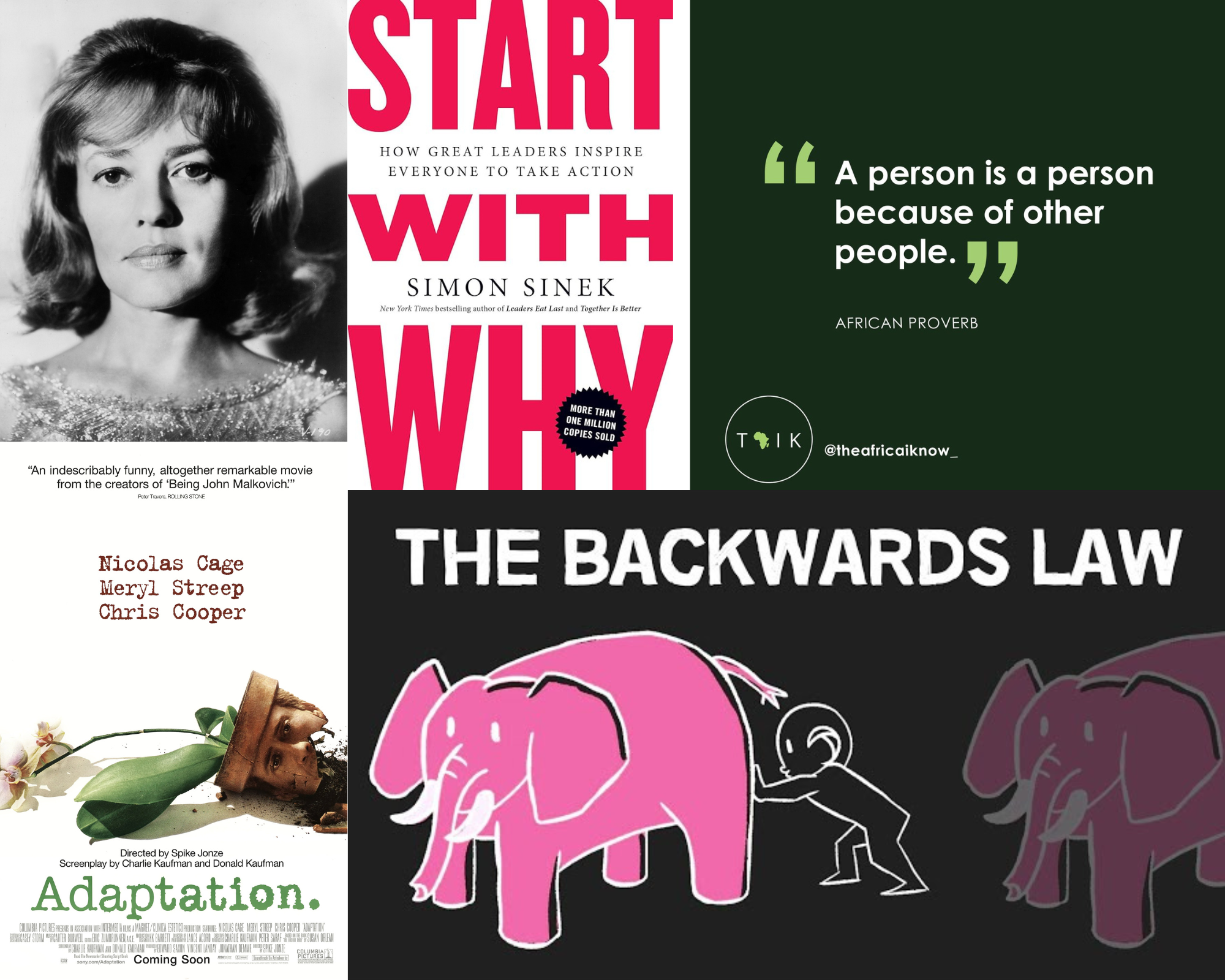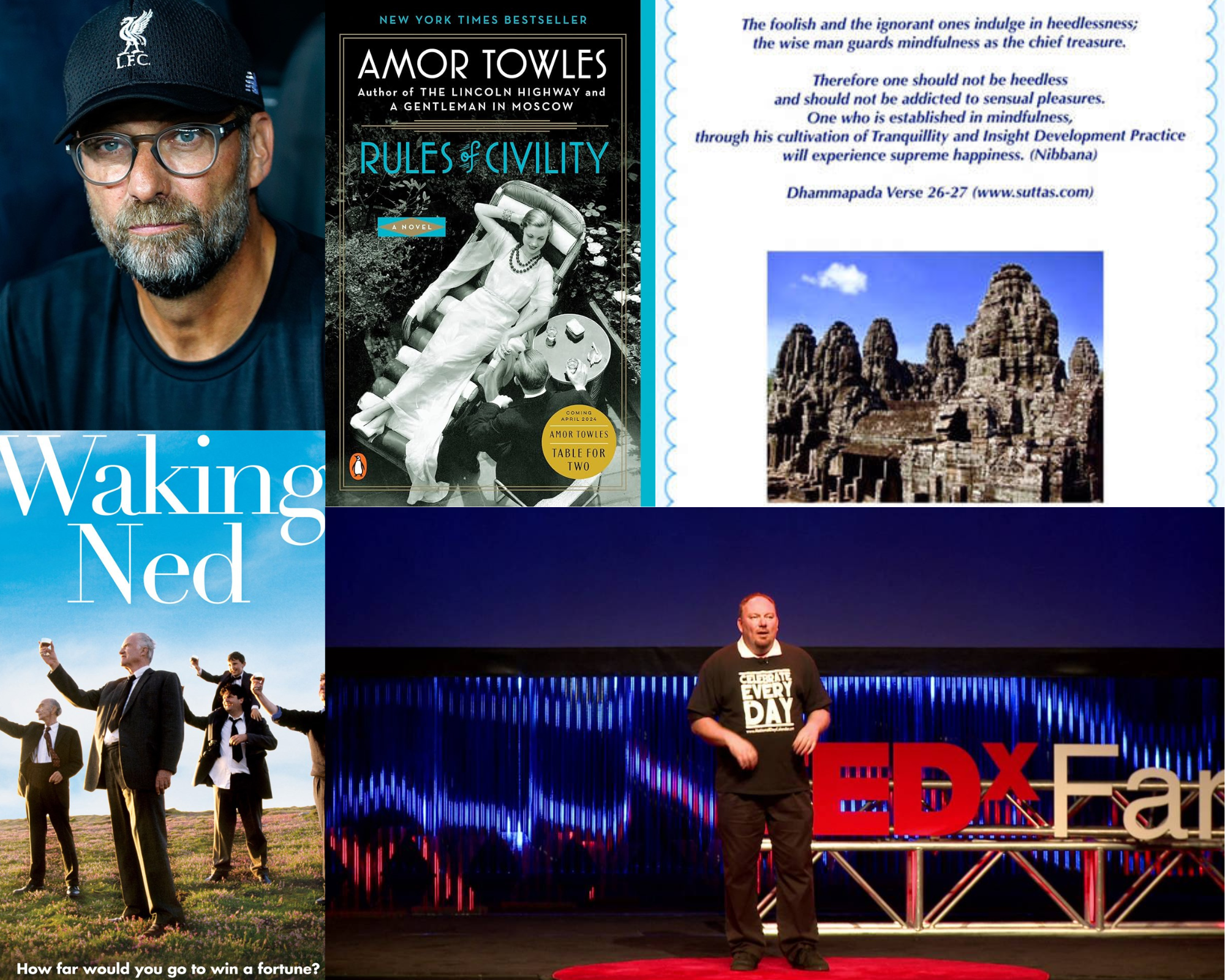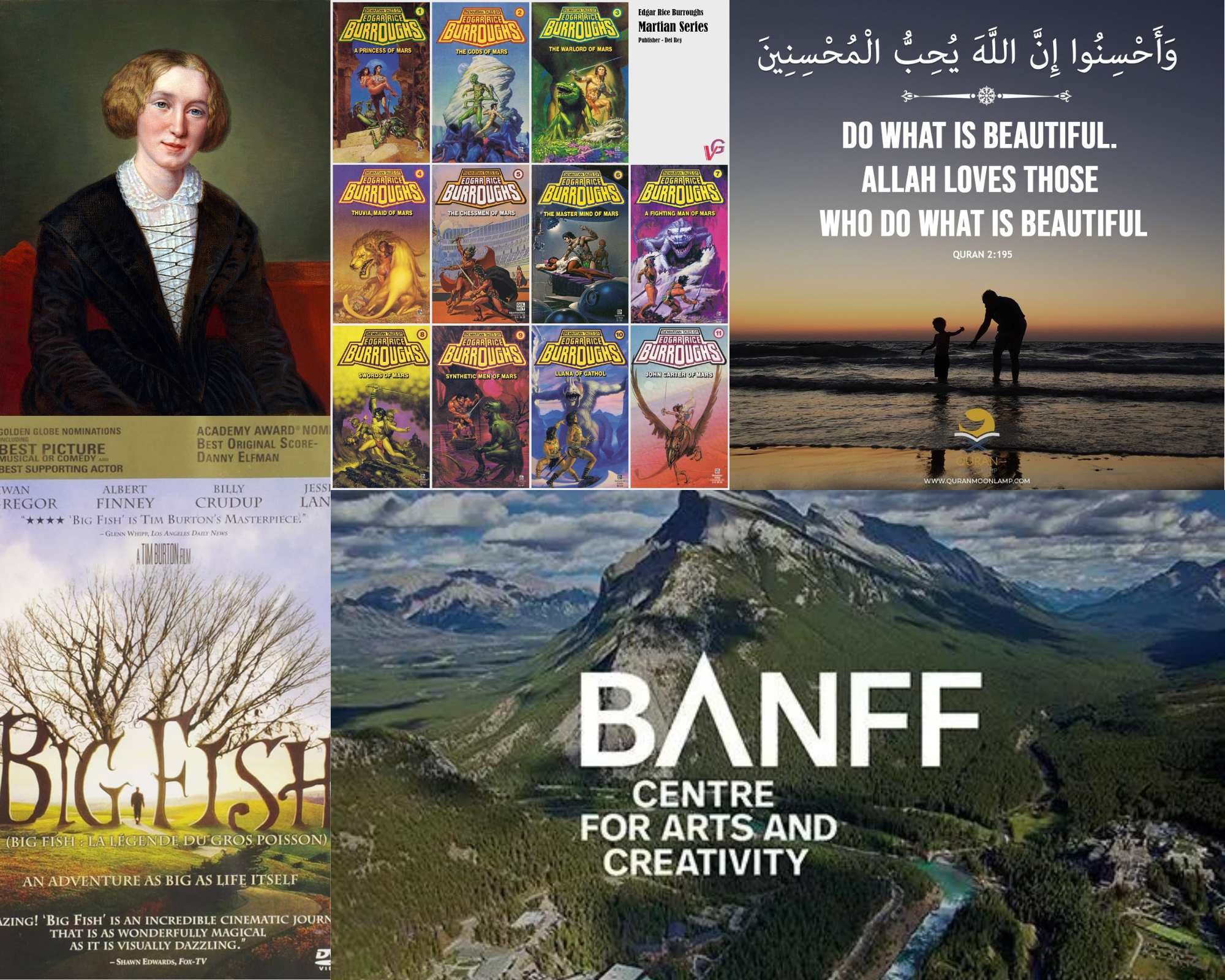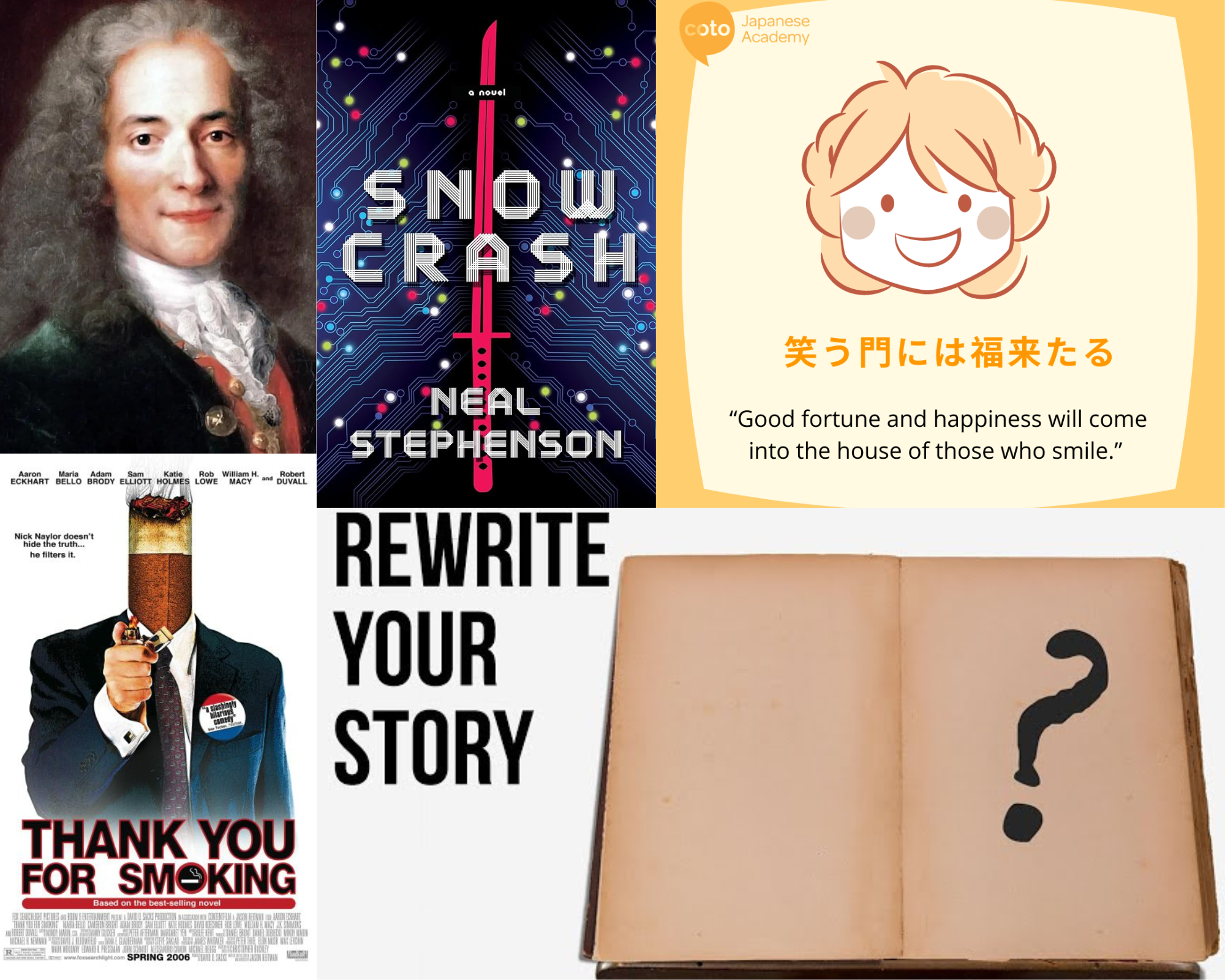Sunday Supplement #149 (March 17th, 2024)
Below is another Sunday Supplement with a quote worth sharing, a book worth reading, a movie worth watching, brainfood worth consuming, and a spiritual passage worth pondering.
Please take something away from these recommendations that enriches your week ahead!
Quote of the Week:
“Do the best you can until you know better. Then when you know better, do better.”
– Maya Angelou
Book of the Week:
The Amazing Adventures of Kavalier and Clay – Michael Chabon
Michael Chabon’s The Amazing Adventures of Kavalier and Clay won the Pulitzer Prize for Fiction in 2001.
The novel follows two Jewish cousins before, during, and after World War II. Kavalier is a young artist who smuggled himself out of Nazi-invaded Prague. He joins his cousin in Brooklyn, and the two delve into the emerging comic book scene.
The cousins partner to make their own comics, and the novel follows their journey from youth to adulthood while pursuing this craft.
I thoroughly enjoyed the novel, which had amazing depth. The growth of the characters throughout the story was brilliantly explored.
For those interested in a classic American fiction novel, I highly recommend The Amazing Adventures of Kavalier and Clay.
Movie of the Week:
One of my favorite Rom-Coms, Hitch, hasn’t always received the best review. I still think it is worth the watch.
The film follows a “date doctor” who falls in love with a cynical columnist while he helps a shy account try to woo an heiress.
The “date doctor” is a man, played by Will Smith, who helps other men get dates with women. I think the criticism the movie gets is usually misplaced about this concept.
My favorite element of the movie is how the story pokes fun, and sometimes in a serious fashion, about the gender roles and societal norms of the dating world.
Even though this movie doesn’t get a lot of love, I recommend it and would be curious to discuss it with anyone interested.
Brainfood of the Week:
Developing a Growth Mindset with Carol Dweck | Stanford Alumni
Stanford University psychologist Carol S. Dweck researched the power of mindset and how we think about our talents and abilities can significantly influence our success.
Dweck discusses studies on students who exhibit a growth mindset by viewing “failure” as an opportunity to learn more versus students who viewed failure as a judgment passed on them.
The students with a fixed mindset responded that they were more likely to cheat on following exams, find others who did worse to make them feel better, or avoid more tests.
I’ve featured Carol Dweck’s book on growth and fixed mindsets in Sunday Supplement #97. If you enjoyed this video, check it out.
Closing Spiritual Passage:
“Knowing other people is intelligence; knowing yourself is wisdom. Overcoming others takes strength; overcoming yourself takes greatness. Contentment is wealth.”
– Tao Te Ching
I read Ursula K. Le Guin’s translation of Lao Tzu’s Tao Te Ching a few months ago. I found its verses beautiful and thought-provoking.
This verse reminds me how vital self-work is to living a full life. We often look outside of ourselves for examples of growth, but working to better oneself can bear the most fruit.
We don’t always have control over external situations, but we do have control over how we respond to them.
I think working on yourself, healing your past traumas, and understanding your behaviors are some of the best uses of our time.
Continue to work on yourself, and have a blessed week ahead!
Comments closed